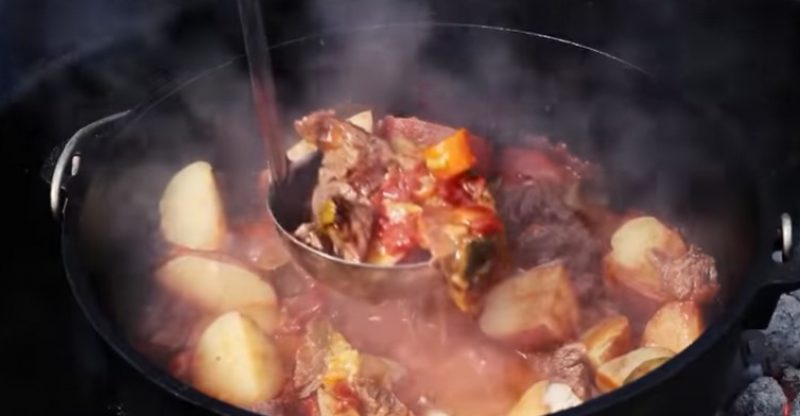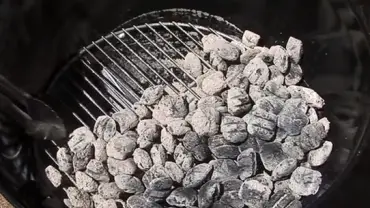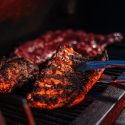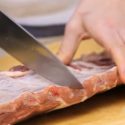How To Avoid Flare-Ups While Grilling
How To Avoid Flare-Ups While Grilling
How To Avoid Flare-Ups While Grilling? On the grill, flare-ups can be a major hassle. Each time one of these pops up, you have to worry about creating a mess and potentially burning your food. You might think that this is something that other people don’t have to worry about, but it isn’t true. Even if you’re an experienced griller, the chances are that you’ve had a flare-up or two before. So what should you do? Read this helpful guide on how to avoid flare-ups while grilling today.
Planning Before Grilling To Avoid Flare-Ups While Grilling
The first step to avoiding flare-ups while grilling is planning. You should consider many things before starting up the grill, such as what type of food you’re grilling and how much of it. Additionally, some factors will affect the way your food looks, like the size of your grill or whether it’s a gas or charcoal grill. These factors all have to be use and work into account before you start cooking because they could impact what happens during cooking.
Once you’ve got those important things figured out, the next step is actually preparing to cook. This means preheating the grill and then making sure that everything is ready to go on the inside by brushing off any excess gunk and ensuring that your food is seasoned well. With these steps, you’ll make sure that nothing burns before it even starts cooking!
Once your grill is ready, all that’s left is waiting for your food to cook! The last step in avoiding flare-ups while grilling is patience; just wait until your food has finished cooking before you start cleaning up any messes from around the grill.
Setting Up Your Grill To Avoid Flare-Ups While Grilling
First, make sure your grill is clean. Just a swipe of the brush will do the trick, but if you want to go the extra mile, you should get out your grill cleaner and scrub it down to make sure that it’s nice and shiny.
Next, set up your grill according to the directions provided in the manual. This is an important step because it helps prevent flare-ups from happening. You might not get these instructions with your particular model of the grill, so check for them online or with someone who has used this brand. Once you have all of these instructions done, open up your lid and let some fire build up on one side of the grill.
You should then cook your food over that side until it becomes crispy and golden brown. When you are done cooking everything, turn off the heat and move everything to the other side of the grill so that they can finish cooking there too. At this point, close all of those lids back up and allow them to cool down before moving on to cleaning them up again.
Cooking At The Right Temperature
The first step to preventing flare-ups is cooking at the right temperature. You should aim for a cooking temperature between 250 and 350 degrees Fahrenheit. If you’re using charcoal, it should be lit at about 300-320 degrees Fahrenheit. If you’re using natural gas, it should be lit at about 275-300 degrees Fahrenheit.
Another important aspect of this is that you need to cook the food on your grill for the time specified in your recipe. If you take too long to finish cooking, the food will start to get overcooked, which can cause a flare-up. The good news is that with practice, you can learn how much time it takes your specific type of food to cook and avoid this problem in the future.
But even if everything goes according to plan when it comes to cooking at the right temperature and timing, there are still some other things you could do to prevent a flare-up from occurring. For instance, if there are any ingredients in your recipe that cause flare-ups (like onions or peppers), stick them on an upper rack, so they don’t come into contact with your meat or poultry as they cook down below.
Avoiding Flare Ups When To Use What Type Of Cooking Method
There are a few different ways to prevent flare-ups on your grill, so it’s important that you know which one is best for each situation.
Some of the most common cooking methods to use while grilling is charcoal, gas, and electric grills. These will work well for simple meats like chicken and hamburgers. But if you’re cooking larger pieces of meat or something with bones, then you should use indirect heat or go low and slow.
Another way to prevent flare-ups is by adding water to the grill during cooking. This will allow the flames to die down without burning the food on the grill. This can help you avoid having your food get too charred. And lastly, if there’s just one piece of meat that doesn’t seem to be sticking to the grill when it should be, then you can try using a dry brine before placing it on the grill. As long as this is done correctly, it’ll make sure that your food stays in place and won’t cause any flare-ups.
Cleaning Your Grill
First of all, you’ll want to make sure that your grill is clean before you start cooking. This means that it’s important that you remove any residue from the grill with a brush or cloth. You should also make sure that any exposed metal surfaces of the grill are also properly clean. To avoid flare-ups, it’s important to keep your grill clean and to use high-quality charcoal.
Final Verdict
You don’t want to create a mess and burn your food. To avoid these flare-ups, you can keep your grill clean and organized by regularly wiping down the grates. This will prevent any food from sticking to them and allow them to be clean easily after each use. You should also make sure that you aren’t using too much heat on your grill when grilling fatty foods like burgers or chicken breasts. Keep in mind that this is only one way to avoid flare-ups while grilling.









